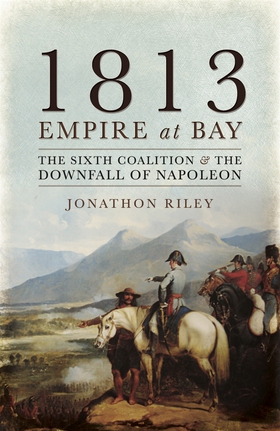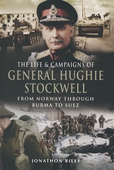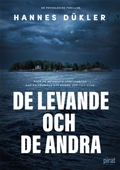
Lägg till önskelistan
1813: Empire at Bay e-bok
Pris
115 kr
1813 was a critical year in the world war that ended with the downfall of Napoleon. In a series of major battles, the converging armies of the Sixth Coalition drove the French forces back. This was the year in which the balance of power tipped decisively against Napoleon’s First Empire, and that is why Jonathon Riley’s highly readable and timely new study is so important. He covers the operations in central Europe and Spain, where the allies broke French power, humbled Napoleon an...
E-Bok
115 kr
Pris
Förlag
Pen and Sword
Utgiven
17 Februari 2021
Längd
256 sidor
Genrer
Historia & Arkeologi, Fackböcker
Språk
English
Format
epub
Kopieringsskydd
Vattenmärkt
ISBN
9781783468706
1813 was a critical year in the world war that ended with the downfall of Napoleon. In a series of major battles, the converging armies of the Sixth Coalition drove the French forces back. This was the year in which the balance of power tipped decisively against Napoleon’s First Empire, and that is why Jonathon Riley’s highly readable and timely new study is so important. He covers the operations in central Europe and Spain, where the allies broke French power, humbled Napoleon and laid the foundations for the Congress of Vienna and the European settlement that endured for the next fifty years.
In particular, he focuses on the operation of the Sixth Coalition - Austria, Prussia, Russia, the United Kingdom, Portugal, Sweden, Spain and the smaller German states. This was the prototype of all uneasy modern coalitions, with their troubled command relationships, disagreements on strategy and operations, and clashing political ambitions. At the same time, he reassesses the performance of Napoleon himself who was also an alliance commander, for his armies included not only Frenchmen but also Poles, Danes, Italians, Germans and a host of other contingents.
In graphic detail he covers the 1813 campaigns, which have received less attention than those of 1812 and 1814/15 in spite of the fact that all the decisive moments came in 1813 – save for one: Waterloo.






